#anyway yeah i love the list
Note
idk who leon and luis are but 👍 cool
also here’s a short list of some of the ideas for how i would’ve changed netwinx lmfao:
Aisha is still royalty and gets her own plotline about like having and becoming comfortable with her freedom now that she’s no longer in the palace. and maybe also her trying to keep her royal status a secret bc she wants to be treated normally for once
bring Tecna and Brandon and Timmy and all the Trix back
if we have to keep the elemental system they were doing (fire, earth, water, air, mind) then Musa should just be an air fairy so she can still have sound powers. also then (if we’re also doing the thing they did where Cloud Tower doesn’t exist fsr and the Trix are at Alfea) Stormy and Musa can still have their little subplot of not liking each other bc they’ve got air magic classes together or smth
make Tecna a mind fairy and either give her telekinesis or telepathy?
Sky is a fairy but his parents forced him to be a Specialist bc they thought it would be more becoming of a future monarch. the Winx help him train his fairy powers (aka as they learn stuff they kinda teach him)
Bloom is still adopted and has a good relationship with her adopted parents!!
Stella has her personality back!!! also all the Winx are friendly from the beginning. are they always gonna 100 percent get along? no. but they still try to be friends first
(ok look I had this idea where Sky and Riven were maybe exes who dated briefly in the school year before the Winx came to Alfea. not sure about it now but eh)
look the Brandon-Sky switch is wild to me but I feel like it would be so funny to keep it
Dane… I had a whole thing with him but idr anymore
there was a whole thing with the Trix and what they were planning, and there was a whole thing for what to do with Dane x Riven x Beatrix, but I said I’d make this list short
I just looked through my notes for this for the first time in like two years and uh. wow I made the Winx way gayer for each other than I remember djdkgksksj
there are probably a few other things that I’ve forgotten but it’s been a hot minute idk
also I feel like this goes without saying but we’re also taking out all whitewashing, racism, homophobia, fatphobia, and ableism
aldhglajd luis and leon are from resident evil !!
ANYWAY i love these!! i've been saying that so many winxers genuinely would be able to fix that mess, it's truly insane to me that they casted a director that hated winx club like dude.
i really like the idea of aisha keeping her royal status a secret!! especially if there was a subplot where she got closer to stella and sky because of it (like they would be the only ones to Know and they'd help her?). musa having air powers is so fun!! like genuinely do not understand why they got rid of music like fuck you. i initially thought they could've just done sound yknow? like not exactly an element but definitely a natural part of nature?
i thought of mind tecna too! i feel like so many people did!! i feel like that would be SUCH a good way to tie in her issues with emotions too. like you could go the easy route and make her an Emotional Mind fairy and she has to deal with that or you could go the Logical Mind fairy route and stick a little more to canon! sky being a fairy... love that for him i want him in so much glitter (me to the specialists: and where's your uniform?????)
i'm actually so mad about them taking away the sky/brandon switch so Mad SOOO MAD
#anyway yeah i love the list#you can send more ideas if you want! i don't mind akjhdgk#i love seeing how people fix netwinx like it sucks so much even without the bigotry#like the show itself is Bad which akjdgkad#aisha keeping a secret ough... love that i really love that idea#itd be so much fun too if you kept the switch? like...#OUGH#answered#long post
6 notes
·
View notes
Text

for day 24 of @hermitadaymay it’s ZombieCleo!!
#my art#GOD she’s so fun to draw I love her#I just like my design for her it’s so fun. Dykeing it up rotting corpse style#am I allowed to say that? Idk if the hermitaday blog will like that but I couldn’t get it out of my head the whole time I was drawing so-#-I’m putting it in the tags#Hermitaday#hermitadaymay#hermitadaymay2024#hermit-a-day#hermit-a-day may#hermit-a-day may 2024#hermitcraft fanart#hermitcraft smp#hermitcraft#ZombieCleo#ZombieCleo fanart#zombie cleo#zombie cleo fanart#ZombieCleo hermitcraft#Anyways I might end up skipping Impulse if I don’t get to him after work tmrw#which I probably wont becuase we’re going to my Omi’s house so rip#and he gets added to the list of guys I missed and want to draw later!!!#anyways yeah I love drawing Cleo. And that’s basically it thats all I have to say. I love drawing Cleo
907 notes
·
View notes
Text
Ideology of Exceptionalism and Gravity Falls; meta and character analysis

I had a whole ago read a post by @icanlife that had a quote by Alex Hirsch on Ford's greatest flaw, and wanted to explore what the flaw is, which is the ideology of exceptionalism; in the exploration, I’ll touch on what it is and how it is used in abusive relationships and cults, as well as how it drives multiple Gravity Falls characters and consequently how it impacts relationships between these characters, and how the show ultimately refutes exceptionalism.
Quick note here; I am not in any way, shape or form a psychologist nor have any formal training in psychology; this is written from my own experiences with this ideology and my own forays into psychology and trauma-informed learning. It is also written with a loose understanding that is likely not broad enough to cover all references to cults, extremist groups and abusive relationships.
The Ideology of Exceptionalism
First of all, we have to get through a drier bit, which is… what is the ideology of exceptionalism and how does it arise? Might be fairly obvious, but it is the belief that you are, or belong to, a group of exceptional people, thus more important and worth more than anyone else; ie, those who don't qualify as 'exceptional'. It is often a subconsciously learned ideology. Now, what qualifies one as exceptional can be extremely varied; generally it revolves around something that provides some form of privilege. Thus, it might be, as the main exceptionalist idea in Gravity Falls, 'intelligence', or power, or it can be such things as attractiveness, quantity of money one has, species, nationality, or skin colour and ancestral heritage. The ideology of exceptionalism, being by nature hierarchical, devalues, and at its worst, openly and violently dehumanizes those who do not qualify as exceptional.
For why exceptionalism occurs is an extremely broad topic, but I've personally found that, for exceptionalism revolving around intelligence, it's a result of a poor sense of self-worth, and having one's self-worth tied to what makes one exceptional. Poor self-worth itself (again, broadly) is a result of childhood trauma from a lack of positive affirmation and unfulfillment of the emotional needs of the child. Meanwhile, self-worth becoming tied to the quality of exceptionalism generally is a result of when positive affirmation was pretty much solely provided around their 'exceptionalism', especially when provided derogatory commentary, or a blatant example of how they would be treated if they aren't 'exceptional'. As a result of the general lack of affirmation, self-worth then becomes often solely reliant on the qualities of exceptionalism, as that is the only way for the child (and later, adult) to get affirmation of their worth, as well as out of fear of being ‘not worth anything’ like the examples of ‘non-exceptional’ people they have been given.
This is especially likely to occur when the child is a social outcast; the adoption of the hierarchical ideology of exceptionalism, and the devaluation/dehumanization of others often occurs subconsciously as an avoidance/minimization tactic from pain. This is to say, the child, and later the adult (if healthy self-worth is not established) goes 'it doesn't matter what the non-exceptional people say or if they accept me since I matter more than them because of my exceptionality'. It can even be taken further, that being shunned is part of one's exceptionalism, and becomes part of the qualifier of being exceptional. For instance, 'they just can't understand because they aren't exceptional and that's just a part of being exceptional'. This idea also neatly tailors into the part of the concept of being better then others means you are separate from others; this can be taken that someone who is special, needs to be alone to be truly special.
Obviously, exceptionalism is not a healthy coping mechanism for poor self-worth, as often such people constantly feel the need to prove and show off their exceptionalism to gain that affirmation and avoid rejection, which is stressful. As well, it often negatively impacts their relationships with other people as a result of the arrogance of believing that they are better than most others, or even deliberate sabotage due to their arrogance. This occurs as they flatten the complexity of human experience to black-and-white hierarchical categories of exceptional/not-exceptional through constant judgement of those they meet, and often refuse to engage with people who don't belong to their 'exceptionality', or even people they simply don't like, even if they technically qualify. Generally, those that they do like or have close relationships with, often due to being similar, are automatically labelled as 'exceptional'. Those judged as ‘exceptional’ also become privy to the open judgements of ‘non-exceptional’ others, out of a subconscious belief by the exceptionalist that the other believes similarly; something that may strain their relationship if the other doesn’t ascribe to exceptionalism. This all culminates in the exceptionalist being blind or even adverse to the diversity of experiences, which makes it difficult to create relationships and community outside of echo chambers of their own beliefs (if they can even find this), and subsequently, these people are often isolated and have very few to no close relationships with people.
However, all humans require connections with other people, relationships where one can rely on others emotionally and physically if needed and feel accepted; they also require to feel like they are worth something, that their life has meaning. Lacking meaningful connections and having a crippled sense of self-worth, a deep yearning hole is left in these people. Exceptionalism, especially as it is a narrative constantly pushed by Western society as it validates hierarchies, is then employed as a (often subconscious) trauma response to assuage this yearning hole, with arrogance and denial. And depending on the circumstances, it can be a very strong and definitive trauma response for people.
This isolation and lack of self-worth is catnip to abusive relationships, including cults and extremist groups. These types of relationships often heavily rely on isolating their victims or pulling them into echo chambers of solely the abuser’s rhetoric, to redefine what is healthy through gaslighting; as the exceptionalists are already isolated, this makes them extremely susceptible. They also often provide these people affirmation, and in these cases especially about their exceptionalism, thus confirming their self-worth, their 'specialness', while also providing them the connection they have been lacking, either through the cult community or through the abuser’s own presence. These emotional needs, which haven’t been met in a long time, if ever, begin to be fulfilled; something that abusive relationships and cults hinge on, rather than any form of logic.
Ideology of Exceptionalism and Gravity Falls
The main characters within Gravity Falls which are heavily ascribed to exceptionalism would be both Ford and Bill; this characterization deeply impacts the story and their relationships with others (technically the Northwest are another case regarding wealth, but less directly impact the storyline and thus tangential; Gideon also is an example, but as a mirror of Bill). With each of these characters I’ll go into detail within their sections on the way they began to ascribe to exceptionalism, and how it plays out later in their relationships; I will first begin with Ford, then move to Bill. Then, to cap it off, I’ll go into the characterization of Stan and the way Gravity Falls refutes exceptionalism.
Ford and Exceptionalism
Firstly, the quote from Alex Hirsch that kicked this whole baby off, as mentioned previously;
“Ford sees Dipper as someone who’s special like himself. That’s Ford’s great flaw, his arrogance is he believes that there’s special people, and everyone else. That human attachments are actually weaknesses. And the song and dance that he’s giving Dipper right now, is the song and dance that he gave McGucket, back when they were younger… ‘You and me are different, we’re better than everyone else. We have a path that no one else can understand, and only us can do this.’ It’s a very seductive idea for Dipper… Dipper is a smart kid, but Ford’s projecting. Ford loves Dipper because he sees someone who’ll tell him ‘yes’ to everything. Who’ll never challenge him, who’ll do a really insane dangerous mission.”
Very blatantly Alex Hirsch calls Ford out on his arrogance in the belief that he is special, in his belief in the 'lone hero' complex, in his belief in exceptionalism. And really, it should be no surprise that Ford does so, considering the way he's depicted as a social outcast as a child (other than Stan), and the way his parents have been clearly shown to be not particularly emotionally supportive (“I’m not impressed”); they don't provide positive affirmation except for his intelligence (mostly due to the possibility of money making through it…), while also actively comparing him to Stan who is derogatorily ‘not-exceptional’, and ‘worth less’. This all sets Ford’s self-worth up to be fragile, and other than Stan who wholeheartedly accepts him, he is isolated and invalidated; plus, the only other validation he receives is around his intelligence. All very classically fitting the profile for exceptionalism.

Image id: Stand and Ford when they were children, both clearly enjoying each other's company.
Ford’s belief in his exceptionalism catalyzes after the shattering of his and Stan’s relationship. Previously the twins are shown to do everything together, having a very close caring relationship; something unlikely if Ford thought he was better than Stan. Also, when Ford is talked to about his opportunities, Ford looks uncomfortable at the way they talk about Stan as inferior, compared to how he himself is being praised; but in the offer he’s simultaneously finally being validated, he’s being told he’s someone worth something, and he’s going to be someone worth something after this. And then the science fair incident occurs, and Ford loses that validation from his parents, from the judges and a future of more validation; after being promised validation and acceptance, it slips through his fingers. And in his anger of being denied that, it becomes easy to begin to slip subconsciously into the rhetoric the others have been feeding him; that he’s exceptional, that Stan isn’t, and he deserved to be recognized for his worth. So he breaks the relationship with the only person who accepted and validated him for who he is. With that loss of previous support, Ford becomes then deeply obsessed with proving his exceptionalism to the world to assuage that fragile self-worth, to become accepted, or even better, revered, confirming that he is someone of worth, someone special, like he was promised.
Ford’s obsession also doubly functions as a way to alleviate his guilt over shattering their relationship; if he’s exceptional as he believes, then he’s within the right to respond the way he did, as he’s worth more than Stan, he's better off alone, and he has a right to be angry over being denied that validation. As well, in much the same way as it is used as a way to alleviate his guilt over the end of their relationship, it is also likely used in a way to minimize the pain of being ostracized (although not directly depicted); afterall, Ford’s keenly aware and insecure about his social ineptitude and his six fingers as things that make him different from other people, case in point with his experience visiting Lazy Susans Diner. Thus it wouldn’t be unsurprising if he uses the idea of being worth more than those who ostracize him to imply it ‘doesn’t matter’ what they think. His ostracization by nature keeps him from generally forming close relationships, with the exception of Fiddleford (who much like him, is socially outcast, and intelligent) during his university days. As a result, he's isolated and acutely lonely, having lost Stan.

Image id: One of the missing Journal 3 pages in TBOB, detailing Ford's botched social interaction in Lazy Susans Diner. In the background is the print of his six-fingered hand.
In his obsession over being acknowledged, Ford, like many others who believe in exceptionalism, identifies strongly with the causes of his ostracization (his intelligence, his six-fingeredness) as part of, or wholly, makes him exceptional. It is obvious through his choice of study; with the grant he has been gifted, he chooses to revolve his work around the weird, the outcast, something that you see Ford gravitate towards being an outcast and deemed 'weird' himself (which in Journal 3 he openly talks about). Something that can be, much like him, framed as 'exceptional'. His work is even recorded in a journal that Ford deliberately chooses to put his six-fingered hand on the cover of. Intertwined with the way it becomes adopted into the idea of exceptionalism, is the keen loneliness from his ostracization and a deep desire to be accepted and a wish to find a community of other weird people.

Image id: Two pages from journal 3, labelled 'Myself', in which Ford is open about being weird, and a social outcast, while also noting his ambitions and that 'Gravity Falls, [is] the place that I fit in.'
Ford and Bill
All of this culminates in Ford becoming an incredibly easy target to manipulate by Bill. He’s desperate to be acknowledged (and thus accepted) by an authority figure so that his belief in exceptionalism is justified and his self-worth confirmed. And he knows he’s intelligent, that he's exceptional because people have told him so, but he just needs to prove it with something that shakes the world. And the grant is finally his second chance after the fair, but he's stuck, and the research is going nowhere, and he's in a town where he doesn't really know anyone and he’s so terribly lonely. And sure, he clings to his exceptionalism but if he can't even prove it then is he really exceptional? Is he even worth anything like he thought he was? And what about what he's left behind, rejected, because of his exceptionalism?
And THEN he finds an incantation and he ignores the warnings because maybe, just maybe, this will be his break to get that acceptance/validation he has been chasing his whole life?
And then it's better than that.
A god, essentially, shows himself to him, an ultimate figure of authority. And he tells him that yes, he is special, he’s worth more than other people, and Bill’s only showing himself to Ford because he is so much more intelligent than anyone else. Ford is suddenly getting his exceptionalism confirmed by a god of ancient knowledge, an immensely intelligent interdimensional being, and he’s also showering him with affirmations, specifically affirmations around what Ford's fragile self-worth is based on. And even better, he's delighted by Ford's six-fingeredness; he's not put off at all, it even becomes his main nickname for Ford, just like it used to be for Stan all those years ago. On top of it all, Ford's own social ineptitude doesn't phase Bill, another thing Ford is self-conscious about; Bill's own social ineptitude as he's not human probably makes Ford feel comfortable, knowing that's not expected from him.
Through Bill, not only does Ford find someone who validates his self-worth through intelligence and even confirms to him that his weirdness is part and parcel of making him special, he also finds someone who he regularly (generally) is in contact with, who enjoys talking to him and even banters with him familiarly. Hell, Bill even deliberately goes out of his way (literally possessing a whole wack ton of rats, then dream karaoke) to celebrate his birthday with him; how long do you think Ford has simply skipped his birthday since he had no one to really celebrate it with? The loneliness, beneath his arrogance and belief in exceptionalism, is being fulfilled; for the first time since Ford was a teenager, he's fully accepted by someone, social awkwardness, six fingers, exceptionalism and all.

Image id: One of the lost pages from Journal 3 in TBOB, the 'one thing led to another' page, with Bill and Ford singing karaoke and drinking together, both clearly enjoying themselves; Bill has an arm slung around Ford's shoulders.
So it's really no surprise at all that Ford fell for this, hook line and sinker. Hell, if I was in Ford's shoes I would fall for it just as hard. And I've seen a few posts floating around talking about how Bill is bad at manipulating, and no, he's not. He was able to pinpoint exactly what Ford wanted and needed, and provided that, was charismatic enough to provide that. Again, manipulation isn't about logic. It really isn't; it's about the emotional core in people, what people lack and what you can give them to slowly reel them in to sing your dance and song. And people will ignore vast swaths of red flags when you're finally being accepted, when you're finally getting your emotional needs met at least in some way or form. It's better than not having them met at all, such as previously. So Ford worshipping Bill is really not a surprise, especially as Bill deliberately stoked it.
All of this is part of why you see Alex Hirsch call Ford's belief in his exceptionalism his greatest flaw; because it allowed him to be very easily manipulated by Bill, and by its nature kept Ford isolated from others, evident by his arrogance in assuming he knows best and refusing to see other people who aren't as 'intelligent/weird' as him as worth getting to know, listen too and even reach out to ask help from, it's him believing he has to be the lone hero as someone whose 'special'. It's something that blinds him to the danger of his work around the weirdness of gravity falls because he’s desperate to seek a place where he and his weirdness belong, and it's something that plays out in each and every relationship he has because it's something he clings to so deeply. It's what cost him his relationship with Stan, who previously accepted him completely, and, as he's disinclined to form new relationships and as Bill actively strokes his paranoia (Trust No One…), ultimately further increases the hold Bill has over him. It's only Fiddleford’s presence as he works with Ford that allows him some form of outside reference and reprieve from solely Bill’s influence, something that Bill resents deeply and is clearly jealous and angry about, even if Fiddleford is helping create the portal. And it's ultimately Fiddleford, once he was aware enough of what was happening, calls Ford out on it, seriously jeopardizing Bill's influence over Ford; but Ford is too invested in the portal, in chasing his own ambition and caught up in Bill’s manipulation to take him seriously, until the incident with the trial, and Ford beginning to hear other voices then Bill.
Ford’s Exceptionalism and Wider Relationships
Now back to how it plays out in all Ford's relationships; we've already gone over it with Bill's influence, because it made him extremely easy to manipulate, and with his disregard of Stan in favor of validation of his exceptionalism. But Ford, as pointed out by Alex Hirsch, also exerts the ideology's seductive rhetoric to both Fiddleford and Dipper (who look up to Ford) in a similar way that Bill does with him (although there is a difference of it being used intentionally and maliciously, compared to subconsciously and earnestly, even if it is problematic). Ford, with his black-and-white view of exceptionalism, sees both Fiddleford and Dipper as people who are like him; 'exceptional', and so he treats them as such, and uses this rhetoric to coerce them into helping him.
For Fiddleford, the lure is how he can change the world, how he can be finally acknowledged if he helps Ford with the portal. And it works well; he willingly chooses to leave his own work and his wife and young son, to work with Ford. Much like Ford, Fiddleford himself is also a social outcast and regularly presumed less smart than he is, and he’s got a chip on his shoulder to prove himself, to gain acknowledgement and recognition from the world at large. Although Fiddleford has a family which presumes he’s not entirely lonely like Ford is, he also clearly has deep feelings for Ford, some which are hinted to be more than just ‘friendly’ feelings; it is likely the combination of the lure of validation and spending time with Ford, a kindred spirit that accepts him and an old friend/crush, that causes him to agree (afterall, it was Ford who made Fiddleford feel accepted and choose to stay at Backupsmore). And Fiddleford’s not even considered a partner, but rather an assistant to Ford due to Ford's arrogance, and he still drops everything to go! It’s more about their relationship and connection rather than validation, but that doesn’t stop Ford from espousing exceptionalism. And this is a distinguishing difference, because although Fiddleford would like recognition, he’s not there solely because of it; he’s not a believer in exceptionalism nor arrogant about his skills, and so, unlike Ford who is blinded by his obsession, he’s much more aware of the dangers of the weirdness of Gravity Falls. Thus, he's actively calculating the risks involved, and when he realizes there could be potentially devastating consequences of the portal, he attempts to talk Ford out of it; this fails due to Ford’s own denial and obsession over the portal. In the end, it all goes terribly sideways, and Fiddleford ends up losing everything he had; his wife, his son, his friend, his memories and himself to the trauma he had experienced at the invitation of his friend with the lure of validation and company, due to the memory gun he had created himself.
As for Dipper, much like Ford, he also has issues with self-worth (many of the episodes deal with Dipper finding self-worth; ie, the manotaur episode), has a physical oddity (his birthmark) and by far the trait he relies on most for worth is his intelligence (for example, in one episode he rubs it into Mabel's face over and over again in beating her in games). He's also extremely desperate to be recognized by authority figures as someone intelligent, case in point when he summons the dead after being made fun of by the government agents to try and show them that the information he's gathered is important after Stan dismisses his knowledge. This desperation to be seen as someone of worth from Dipper, much like Ford, extends to the need to be a hero, something he even says at the end of the zombie episode; yet, due to Mabel, unlike Ford he's not a lone hero, and Mabel also half the time acts as the hero.

Image id: Zombies crawling out of a crack after Dipper summons them; Dipper and the two agents look on in horror.
It all culminates in Dipper hero-worshipping Ford when he returns; really, no different than Ford worshipping Bill. And Ford clearly finds it extremely flattering; Dipper's attention and amazement of him feeds his exceptionalism. Exactly how Ford responded to Bill, Dipper is willing to do anything for Ford, excited too, in an attempt to impress Ford and be validated and accepted. And for Ford, that's an extremely heady feeling, especially as someone who has been constantly alone the last 30 years, especially when he had one previously confirm his exceptionalism all those years ago and stopped, and now someone is once again affirming that idea. And Ford doesn't have to be alone again, because he's found a kindred spirit in Dipper as his assistant, someone ‘just’ like him, someone who is exceptional. Because he sees himself in Dipper, he begins to espouse exceptionalism unconsciously, by praising Dipper's own intellect and adventurous spirit, assuaging his feeling of self-worth, while also telling him he's more important or better than others because of it.
And it's seductive to Dipper, because he wants to hear those affirmations of his self-worth, especially as he hero-worships him, but Dipper isn't sold on it, because it means leaving Mabel behind, it means believing that he's worth more than Mabel (and also, Stan, and all his friends he’s made in Gravity Falls). It's ultimately because of his relationship with Mabel that he rejects the ideology; he's not isolated the way Ford was with Bill, and he's not willing to break that relationship for that acknowledgement, because his relationships matter more to him.
Bill and Exceptionalism
Now of course, that's only on the Pines; what about Bill?
While it's obvious that Bill uses exceptionalism as a main manipulative tactic, it's not just an ideology he sprouts emptily; it's also an ideology he believes in, just like Ford, although it's less based on intellectual exceptionalism, and more on power and 'weirdness'.
This most distinctly can be seen in Bill's denial about what happened to his home dimension; Bill's belief in his exceptionalism occurs as a pain avoidance tactic from killing his whole dimension. Bill was clearly a social outcast within his dimension due to being able to see 3d; he's not accepted, and not trusted, to the point that there is medical intervention to make him blind. That's a deeply traumatic experience that completely erases one sense of self-worth, where one’s sanity is called into question by your parents on something that is not harmful, that's beautiful and you just want to share with them. It's a deep and clear rejection of who Bill is, and his ability. As a result, out of a desperate bid to be understood and accepted, he ends up trying to show them the stars. And it ends up killing everyone.

Image id: Page of TBOB, on 'The Early Years' which notes that Bill was an oddity for seeing 3d, something that was illegal to speak about. Bill frames it as something that made him 'special' and better than all the others.
Traumatized, and originally rejected by the dimension, he instead weaves an excuse of exceptionalism; that it doesn't matter what he did to them because he's exceptional and he's worth more than all of them because he can see 3d, because he's powerful, so he shouldn't/'doesn't' feel any remorse about it. With such a traumatic result of trying to be accepted by people, he rejects the idea of trying to be accepted for who he really is; instead adopting a facade of a monster that he believes he is (and eventually, becomes).
Even if he clings to the delusion of exceptionalism, and shuns attempts to find true acceptance, he still wants it; and that's where his henchmaniacs fit in, as they're all, as Bill's noted when trying desperately to get Ford to join him, weird; each has something 'wrong' with them, which is why Bill accepted them as his lackeys (although it's not like we know the context around these). It's a surface-level acceptance however, one more predicated on fear than emotional acceptance. He's taken his 'weirdness', much like many do who believe in exceptionalism,as ‘part of what makes him exceptional'.
In the same way that Ford wants to show the world that he's smart and intelligent by building the portal, Bill does so by wreaking havoc and taking over existences as a way to show the world that he's powerful, that he's someone to be reckoned with, that he's not someone to be ignored because he's someone who's worth more than others. If you can't be loved and accepted, then being hated and feared is better than being ignored; acknowledgement at least approaches acceptance, it's validation of some sort of worth. It also functions as deliberate self-sabotage of his morals, by proving that he is the monster that killed his entire dimension; if that's what he is, then that's who he's going to be, because if he wasn’t, then he has to come face to face with his remorse over what he did to his dimension and his whole house of cards around his exceptionalism and not caring collapses. So instead he keeps feeding the delusions the denial, and lies and lies and lies and keeps lying to ignore all of it, to wrap himself in this shroud of exceptionalism and brutality as a way to function. And it somewhat works, because he's mostly deluded himself about it all, even if subconsciously he knows.
And of course, this display of Bill's exceptionalism is what brings Bill to earth, to Gravity Falls, and to manipulating humans. In meddling with earth and humanity, beyond Bill's goal of taking over earth and fleeing his own unravelling dimension, he also enjoys reaping the benefits of being worshiped by humans, who find him awe-inspiring. Their amazement of who he is, and Bill's own posturing and manipulation of people leads to Bill literally forming cults (ie ciphertology) or having apprentices that worship/find him (to varying degree) inspiring; all reinforcing his feelings of exceptionalism.
Of course, Ford numbers among these people; he praises Bill and worships him, as he's played like a fiddle by Bill, because his self-worth and belief in exceptionalism is fucked up in a way that perfectly resonates with Bill’s. Because it's the exact same types of issues around self-worth, around being an outcast, being weird and wrong physically, and yet at the same time gifted. And Ford clearly is incredibly lonely and yearning for acceptance, but so is Bill; since the beginning he's been trying to find someone who would accept him, even if he's given up on it. And for his song and dance to entice Ford in, he pretends he's not crushed dimensions for fun, that he's not a 'monster'; a version of him he buried after he had tried to show his parents the stars, one that he occasionally resurrects and puppets around for manipulation (all lies are better when they have a grain of truth). And this version of him is worshipped, but above all is accepted, is loved by Ford. The softer parts of Bill, even if they are still weird as fuck, the parts that were never far beneath the surface for all his deluding, become loved by Ford. Much as Ford becomes hooked on Bill’s praise, Bill also becomes hooked on Ford's genuine love and care. It becomes personal, unlike any previous ‘inspirations’ and Bill over time gets to the point that he feels accepted, safe enough with Ford to share about his dimension much more close to the truth then he did with any of his henchmaniacs. He becomes vulnerable with Ford, in response to Ford’s own vulnerability with him. He’s finding acceptance for the first time in his life around the softer parts of himself, not just the feared acknowledgement that comes from his dimensions conquering; much like Ford is finally finding companionship and acceptance with Bill, not just only intellectual validation. Bill's also for once, not just self-serving; he cares, and goes out of his way to take time with Ford, even celebrating Ford's birthday (in the unique way he does things), both with the rats and the karaoke.

Image id: One of the lost Journal 3 pages in TBOB. Ford recounts Bill talking about the destruction of his dimension, and calls himself by implication a monster.
They're both fulfilling each other's emotional needs, needs which both of them have struggled with most, if not all of their lives (although their relationship is certainly not healthy, considering it's codependent as fuck, riddled with exceptionalism and oodles of power imbalance issues). And suddenly, against Bill's plans, Ford's no longer just a disposable pawn, but someone Bill wants as part of his team, someone by his side, closer than his henchmaniacs are. He's unwittingly fallen for Ford, and so when everything goes sideways in his plan, and Ford swears it off, suddenly cutting off their relationship and that acceptance Bill had finally felt, he spirals into grief and anger from the rejection. As a result, he becomes extremely abusive to Ford in desperate attempts to continue their relationship, and ultimately he becomes obsessive over Ford joining him again as Ford continues to refuse, as evidenced by both Weirdmageddon and the Book of Bill.
Stanley Pines, and the Refuting of Exceptionalism
Exceptionalism, being a negative driving factor behind many core character dynamics, is ultimately refuted by the show. This occurs multiple times over the show, such as with Mabel in the Pioneer Day episode, especially compared to Pacifica, but mostly through Stan's characterization. Stan is someone who has been since the beginning characterized (if lovingly so) as someone who is a failure by societal standards; he’s an older man running a run-down tacky tourist shop to swindle gullible tourists out of their money, has multiple divorces, has an ongoing feud with a literal 12 year old, clearly has had multiple mishaps with the law (some ongoing), is generally pretty self-serving and is extremely lonely and really had no close relationships until Mabel and Dipper showed up. He's not exceptional; he's not even what we would consider 'decent' enough to have a 'typical, hard working job’. In short, he’s a failure, a stark difference to the idea of 'exceptionalism' that characterizes Ford. If he's gifted in any area, it would be charisma (debatedly), not anything else.
But it's still Stan who rebuilds the portal from literally only one journal (not all three!) and gets it to work. It even seems like he only needs some codes from the other two journals when he does get them, suggesting that he was able to extrapolate from what was left and the first journal’s blueprints to fix it entirely, something that is extremely difficult and technically complicated (Ford, Bill and Fiddleford all worked on it together!). Stan's able to do it, even if it's been shown he's not 'naturally' gifted in that area. And it's something he does as a result of his deep care for Ford; because even after their fights, he cares about Ford and wants to right his wrongs, believes he should, because of his whole life of being defined as a failure and even worse than that, screwing up his ‘exceptional’ brother’s life. And he’ll do it even if that means learning how to build an interdimensional portal, even if it takes up thirty years of his life doing so, and he doesn't waver. Much of this is connected to his own complexes around being deemed a failure compared to Ford, having failed to succeed in his life, and how he feels that he needs to atone for screwing up Ford’s life, now for the second time; but beneath it all, he also cares. Much like Ford, he's extremely lonely, but he's not blinded by Ford's arrogance, and as a result he wants to make sure Ford's safe, because that's what he used to do, they’re twins, they grew up together, they once they had fully accepted and cared for each other, and dammit that still means something, and Stan hasn't found that depth of emotional connection since. So if possible, he wants to rekindle that closeness they had, but first, he needs to bring Ford back.
And in the end, it's not Ford's own special gun he built using his intelligence that 'kills' Bill. It's Stan, someone who Ford had long ago broke it off with in search of validation of his exceptionalism, someone who both Ford and Bill labelled as 'not-exceptional', who defeats Bill. It's exceptionalism's devaluation of people who are 'not-exceptional' that causes Bill to underestimate the Pines beyond Ford, and it's only when Ford put aside his exceptionalism and his refusal to accept and trust 'non-exceptional' people, that is, trust Stan once more, that causes Bill to end up defeated by Stan.
In the end, it's not about who's 'smarter'; it's a reminder that everyone has different skills and are better at different things, but that doesn't diminish one's worth or value, and that just because someone isn't naturally 'gifted' in an area doesn't mean they can't learn or use different ways to get around obstacles. Ultimately, it comes down to that no one is worth more or less than other people; exceptionalism is a lie. It’s a lie and an excuse, and it's certainly not a healthy way to assuage one's poor self-worth. What does matter is creating positive healthy connections with other people, and caring about them. This creates a community where you can be yourself and be emotionally fulfilled through these connections; and when opposition does arise, you become able to fight it together, and fight so much stronger than if you are alone.
And by the end of the show, you see that. Ford begins to let go of the ideal of exceptionalism and its black-and-white categorization; finally recognizes his own faults around prioritizing validation of his intelligence and exceptionalism over his relationships, and finally, after all the years, chooses to create and rekindle positive relationships with people, trust people, and make amends. And in the end, he goes sailing with Stan, prioritizing their relationship, finally fulfilling their childhood promise.

Image id: One of the pages written by Ford into TBOB. Ford refutes Bill's idea of happiness, and says he has finally found his own happiness, and it looks like the photo taped in, of Stan, Ford, Dipper, Mabel, Soos and Wendy, all smiling together.
TLDR: Exceptionalism, an ideology of categorizing people into being special and worth more vs plebian and worth less, is a trauma response and subconscious ideology that characterizes Ford and Bill’s lives, deeply impacting all their relationships as it is used to coerce people into doing what they want, makes Ford easily manipulated, and breaks relationships through their arrogance. It is ultimately denounced through the way Dipper chooses to reject Ford’s offer and his rhetoric of being exceptional, and through the way it's not Ford’s intelligence, but rather Stan, who has been labeled as 'not-exceptional' and a failure at life, that defeats Bill through trickery. It's a reminder that everyone has worth, and no one is worth more than other people, even if one may be gifted in certain areas; the ideology of exceptionalism is fragile and a lie. In the end, creating a caring, loving community around oneself is where strength truly lies, as is seen with the deep care and love the characters have for each other, and the repairing of Ford and Stans relationship.
Thanks to the lovely @eshtaresht who deigned to beta read this monster of a post for me
If you enjoyed this meta, (first of all if you read all this you're a champ!) I've also done another gf meta post! (It's shorter I swear)
#gravity falls#ford pines#stanford pines#bill cipher#stanley pines#stan pines#hugin rambles#hugin rambles gf#journal 3#the book of bill#thisisnotawebsitedotcom#billford#fordsquared#gravity falls analysis#gravity falls meta#book of bill#tbob#christ its so long whyyyy#also oh nooo i wanna do another thing but SPECIFICALLY on trust. gravity falls is ultimately about strength in community and hnnnghhhhh#that makes me wanna cry#also i had so many thoughts. also on the denial part of exceptionalism??? oh baby Bill fucking LISTS it in his book#like sir. please#anyways i love media analysis and im totally normal about all these characters#also like Fiddleford is. like. yikes man.#anyways uhm. does dropping a 6k essay post make me sexy? please say yes (i HIGHLY doubt it#sheesh who's got time to read all this... psssspsspspp theres PHOTOS that TOTALLY dont have more reading in rhem nawwww#i totally dont know what ur talking about mhmmm#if youre like is this about gifted kids- yes. yeah. i just didnt name it. its also about wider things but. yeah#also. unofficial title? Gravity Falls and Gifted Kid Issues an analysis#oh boy sure hope my post about gifted kid issues is a hit on the gifted kid issues site
456 notes
·
View notes
Text
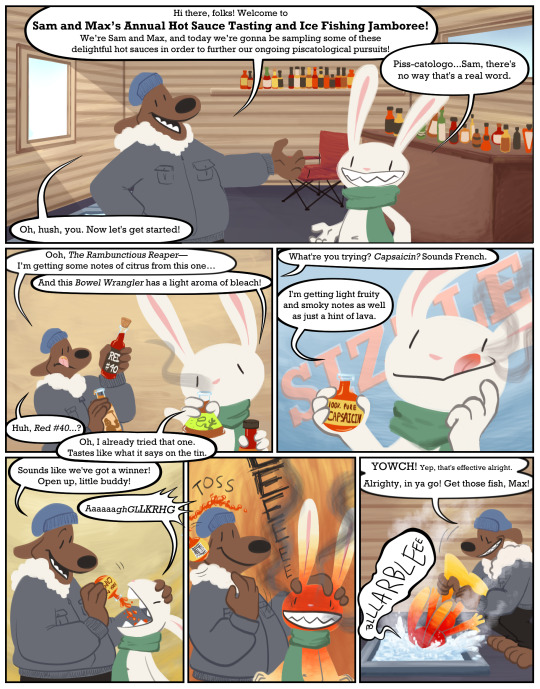
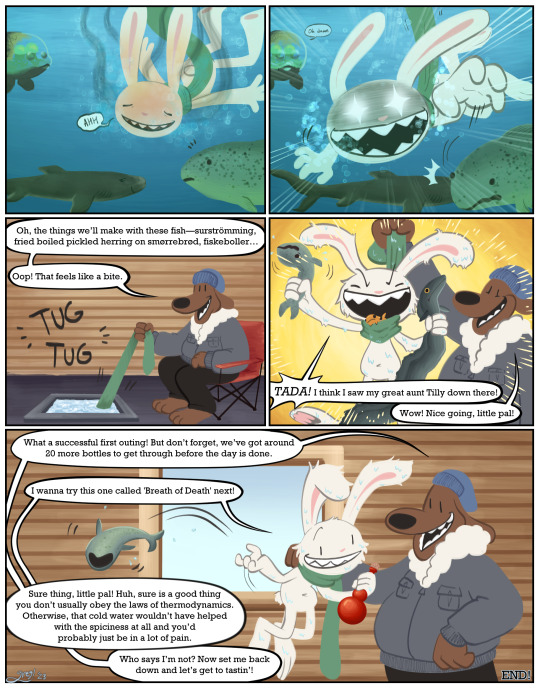
BEHOLD!! I made an entry to Skunkape's 2023 Holiday Contest! :'Dc I worked so fuckin hard on it hhhrhrhrhgdhsjglshgjdjfh and let me tell you, I do not at all hope to win but I do hope it makes Steve snicker. Just the thought that he'll be seeing it is wild. Hope it makes y'all snicker too ehehehe!!
#piscatological: having to do with the science or study of fishing#and yeah I did look up a complicated word on purpose hehe >:3 I think that’s what Sam does in his spare time anyway#fun fact I was gonna give Sam a blue coat but then I realized that he bore a striking and unnerving resemblance to one Sans Undertale#so that had to get scrapped lmaooooo#but I really like how it turned out anyway heheheheeeee#I really liked making Sam dream of terrible fish dishes jdklgjdlsghdsf (terrible by the definition of a list I found somewhere lmao)#all I know about surströmming is that is is so smelly you have to open it outdoors in a bucket of water apparently#terrible. they’d love it though sskskshgfjfhdjdgs#sam and max#sam and max freelance police#freelance husbands#my art#skunkape holiday contest
959 notes
·
View notes
Text
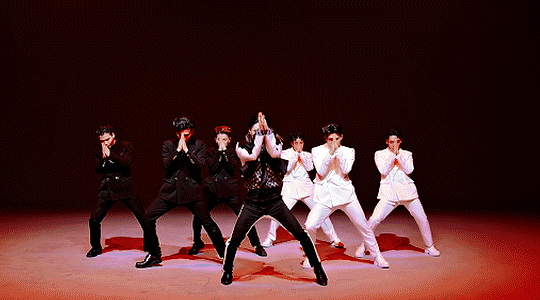


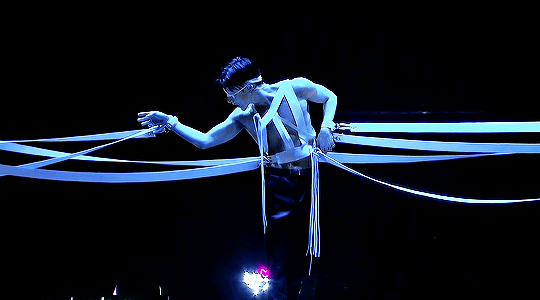
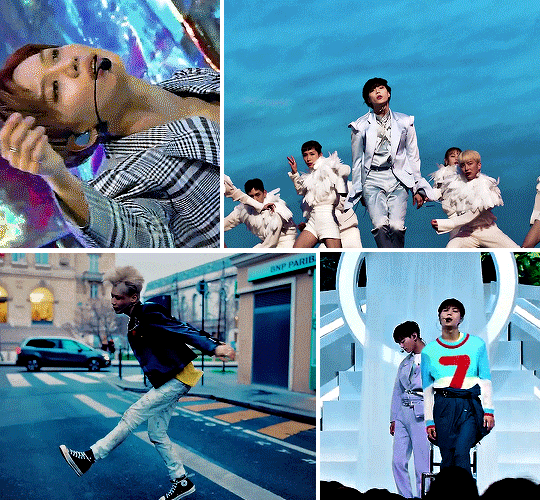

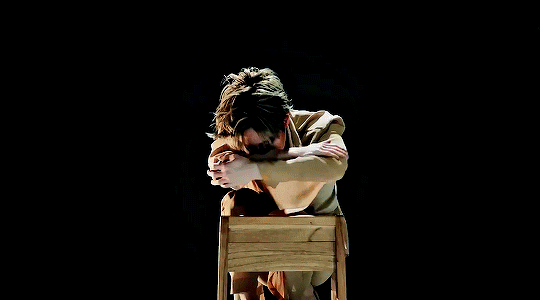
@ye-xiu's favourite taemin looks
↳ happy birthday, al! ✨
#shinee#taemin#lee taemin#kpopcc#ksoloists#dailyshinee#maleidolsedit#kpopco#mgroupsedit#kpopedit#*taemin#*comp#*gifs#happy birthday my bestie my babie my friend from the stars#time goes by so fast how is it your day again we just celebrated it!#I'm gonna keep it short here because I'll say everything on the phone anyway - here's another little something for you <3#it's SUCH a surprise right you would've never guessed it#hehe I had a very taemin-ful weekend (I literally just finished it it took so long I'm ahfhklj idek why)#it's your whole list because of course duh#for some I was like 'yeah of course she likes that one' lol (like the press your number one)#you literally DRESS LIKE THAT sdhfghj it made me chuckle#I hope looking at your second favourite cancer (wink) will make you smile that's all I want <3#I love you sooooo much bestie!!! see you in two days!!!!!
221 notes
·
View notes
Text
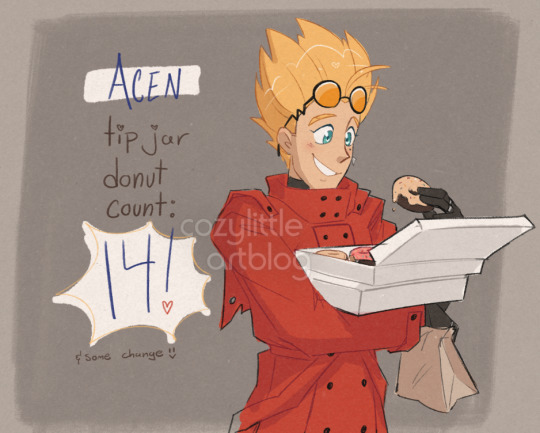
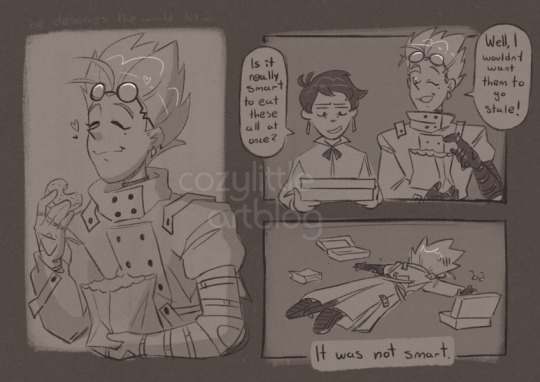
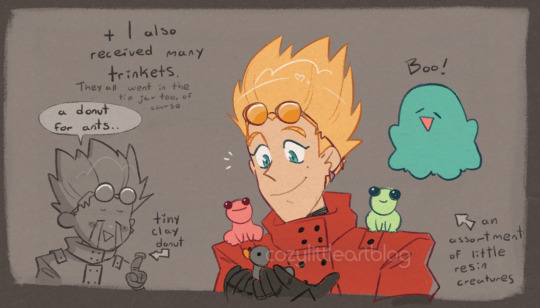
my ACEN tip gimmick has been fulfilled, aaand i got a little carried away with it. I haven't had time to draw for myself (or at all, really??) in like two weeks, i needed to Doodle and Have Fun. ... also, i did not think he would get so many donuts. people understand the value of giving treats to fictional characters :) its what he deserves
also shoutout to snazzyskeletons who had the same Tip Theme i did. we took pictures with our tip jars together. they are adorable v
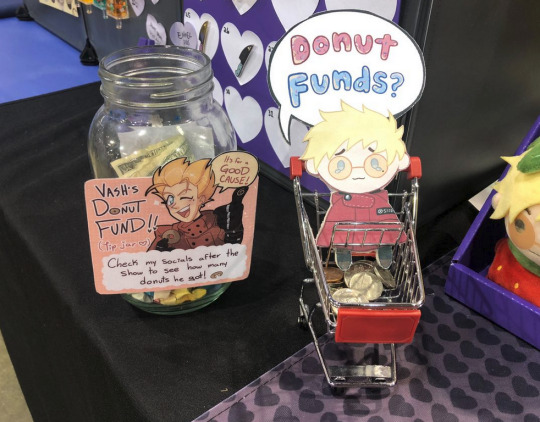
i'm glad their vash got some donut money too :) 🍩 please check them out if you want some cute trigun stuff
#trigun#trigun 98#art#doodles#trigun fanart#fanart#acen 2024#vash#vash the stampede#meryl stryfe#i get paid and vash gets um. tummy hurty i guess. look donuts are like strawberries you gotta eat that shit IMMEDIATELY ok#i love you people who gave vash donut money. i love you people who gave me little trinkets. i especially love you#vash cosplayer with a giant prop gun full of teenie tiny clay donuts. thank you for the donut i put it by my mini vash funko pop#i met so many nice trigun fans. all of you are so NICE ; - ; LOVELY fandom over here. and so many good cosplays#i saw wolfwood. i dont mean i saw a wolfwood cosplayer i mean i Saw Wolfwood It Was Him In Real Life I Swear#i dont think vash ever actually wears his glasses up on his head like that but i think it looks nice so i will keep doing it#he has cool glasses. they should be seen. cool glasses and eyelashes. mwah#i have a somewhat cool wolfwood illustration idea in my head but i just haven't had time to work on it at all#and i want to draw the insurance girls !!!!!! AAAA. MILLY. MILLY I LOVE YOU !!!!!!!! MILLYYYY#GOD i have so much art to work on. they need to invent a days with more hours in it#yeah i'm making steady and good progress through my to do-list but I Need To Get Through It Faster#anyway its 6am i need to schedule this and go to bed already#one more thank you to everyone who stopped by and said hello!!! ACEN was such a blast i hope i get in the AA again next year
145 notes
·
View notes
Text
"poor star dream!"

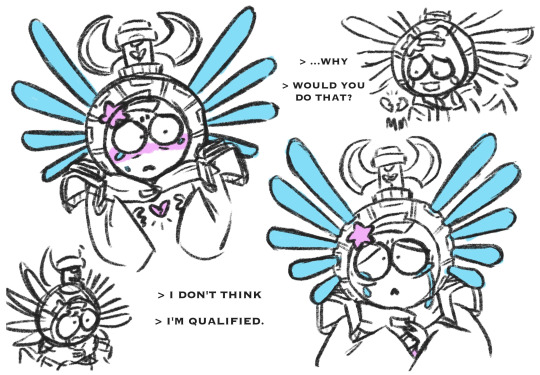
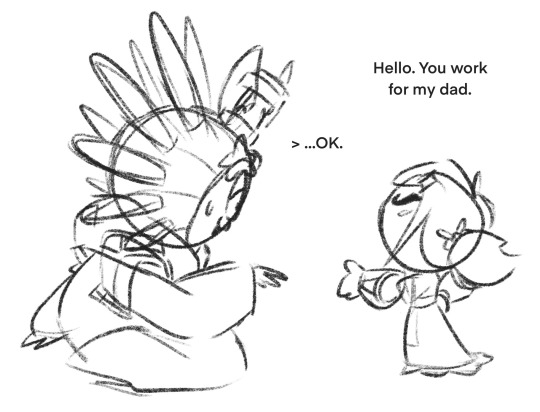

some star dreams from the past month-ish. working on an animatic with this robo bozo
#kirby#kirby gijinka#lrblev art#sketch#character design#kirby planet robobot#susie haltmann#susie kirby#star dream#star dream kirby#congratulations to susanne patrya haltmann for becoming the youngest-ever perpetrator of workplace harassment#“yippee!”#< quoting susie#“me? cause mass destwucshen??? :333”#< quoting star dream#anyways yeah i love this dinky-ass computer#i think theyve become one of my faves in the series actually#let me know if i will have to fight you for the title of “biggest star dream fan” in the tags#preferably alongside a list of your weaknesses#(for legal reasons: /j)
134 notes
·
View notes
Text
quotes from alex turner's favourite authors that make me want to put my face through a wall:
"although i have never been an actor in the strict sense of the word, i have nevertheless, in real life, always carried about with me a small folding theatre" - vladimir nabokov, despair
"there is a terrible emptiness in me, an indifference that hurts," - albert camus
"there is no trap so deadly as the trap you set for yourself" - raymond chandler
"at eight, he had once told his mother that he wanted to paint air" - vladimir nabokov
"no man ever understands quite his own artful dodges to escape from the grim shadow of self-knowledge" - joseph conrad
"everything i've ever let go of has claw marks on it" - david foster wallace
"we're all lonely for something we don't know we're lonely for. how else to explain the curious feeling that goes around feeling like missing somebody we've never even met?" - david foster wallace
"i turn over a new leaf every day, but the blots show through" - keith waterhouse
"the truth will set you free. but not until it's finished with you" - david foster wallace
"curiosity is insubordination in its purest form" - vladimir nabokov
"i'm me and nobody else; and whatever people think i am or say i am, that's what i'm not, because they don't know a bloody thing about me" - alan sillitoe
"we live as we dream; alone” - joseph conrad
"i liked, as i like still, to make words look self-conscious and foolish, to bind them by mock marriage of a pun, to turn them inside out, to come upon them unwares" - vladimir nabokov, despair
"whatever you get paid attention to for is never what you think is most important about yourself" - david foster wallace
"i continued to stir my tea long after it had done all it could with the milk” - vladimir nabokov, despair
"i remained too much inside my head and ended up losing my mind" - edgar allan poe
"all the information i have about myself is from forged documents" - vladimir nabokov, despair
"how odd i can have all this inside me and to you its just words" - david foster wallace
"you will never be happy if you continue to search for what happiness consists of. you will never live if you're looking for the meaning of life" - albert camus
#all of these are from books/authors alex has explicitly mentioned being a fan of#god i wish he talked more about what he reads because i find the books and authors people are drawn to fascinating#it's such an insight into someone's psyche#then again maybe that's why he doesn't talk about it a lot - the books you love are quite a personal thing#but yeah#having read a few things i just thought i'd compile a little selection of quotes from his favourite books/authors that#idk - stuck out to me as being very alex#and it's safe to safe i have well and truly destroyed my own heart in the process#i also now absolutely have to read despair by vladimir nabokov#it's one of his that i haven't read but i had a little flick through it and oh my god i can totally see why alex is so into it#this list was almost entirely just quotes from that book#there are SO MANY that are just painfully alex#(in my mind anyway)#anyway#enough rambling from me#i might have to do a part two of this at some point#alex turner#arctic monkeys#lulu posts
259 notes
·
View notes
Text
can we talk about the fact that the icons, the memes, the tumblr sexymen who broke history, reigen arataka and sans undertale, are both some of the most exceptionally written and executed characters i have ever had the pleasure of stumbling across? please can we talk about that?
#“some of the most” is not exhaustive btw#that list of the “most” includes mob (ofc)‚ mizu from blue eye samurai and practically the entire cast of arcane#plus many more#but yeah just went down a rabbit hole of watching undertale video essays#and HOLY SHIT i had forgotten quite how INCREDIBLE this game is#toby fox the fucking genius that you are#and i could ramble about how incredible and well written and fascinating reigen is until i turn blow in the face#mob psycho you will always be famous#anyways if you're seeing this from undertale go watch mob psycho#all undertale fans should watch mob psycho#esp if you like undertale's humour#and vice versa actually#but im sure if you're on tumblr you've at least stumbled into undertale before#anyways#oh yeah also this is not a dig on them being tumblr sexymen#i think it's funny that the internet gravitates naturally towards such brilliant characters to meme over#and it gets more people into the source media which is a fucking win win in my books#reigen arataka#sans undertale#mob psycho 100#mp100#undertale#toby fox#tumblr sexyman#tumblr sexymen#sansgen#i guess#oh how i love it when two pathetic men kill the queen with the power of gay love#(nagito and serizawa are sobbing in a corner)#thoughts n rambles
34 notes
·
View notes
Text
Serendipity should be required viewing material before anyone tries to analyze Homestuck; not only is John Cusack a universal constant, but the themes and vibes of Serendipity are so fundamentally woven into Homestuck's DNA that several of Serendipity's thesises and conversations could be lifted directly from one to the other.
In particular, the way Serendipity utilizes coincidence and circumstantially simultaneous events in order to suggest - nay, decree - that the two leads belong together, is highly reminiscent of the way Hussie uses foreshadowing, and not just for romantic couples. It's also a major window into the ultimate stance Homestuck takes with regard to romance, fate, and destiny, and also more specifically, a really good look at Karkat's own personal philosophies of romance. There's a running theme in his movies of meeting someone that perfectly matches your freak, someone you don't ever need to compromise yourself around, who brings out the best in you.
Also, some of yall need to watch a shitty romcom every once in a while and develop some emotions
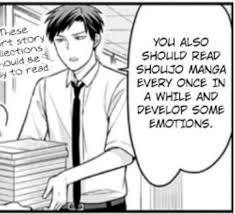
#I'm genuinely not joking#if you want to understand Karkat and Homestuck better you need to watch Serendipity#at the very least so you can understand what the comic means by soul mates#i mean it's literally NAMEDROPPED during the troll romance section as the ultimate expression of finding your soul mates in every quad#people literally will be like 'i like karkat' and not watch serendipity smh#anyway the karkat movie list is serendipity • hitch • 50 first dates#he calls serendipity and hitch specifically 'pure magic' and yes. yeah.#i know we all love to clown on karkat's love of embarrassing romcoms and we're right to do so it's hilarious#but hussie also unironically calls it the best character trait he gave karkat and hes soooo correct about that#and you can tell from the way serendipity and even 50 first dates are described that those are kind of hussies genuine feelings toward them#hes right 50 first dates DOESN'T make you want to punch adam sandler#despite the occassional uncomfortable lowbrow comedy segment everything about the romance is played so straight and so genuine#maybe this shitty adam sandler romcom made me cry maybe im man enough to admit it#and idrk how else to describe serendipity besides 'pure magic'#tbh just watch it for yourself#homestuck is like 30% serendipity by volume
48 notes
·
View notes
Text


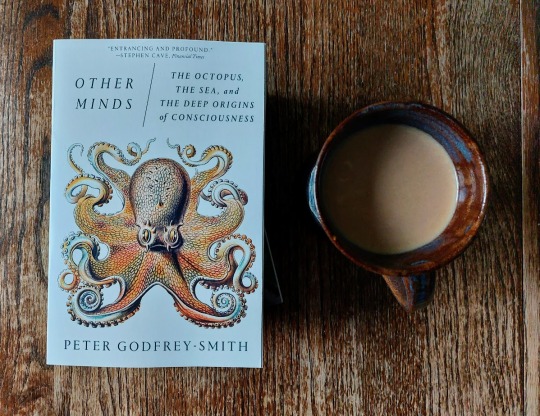

Replenishing the Nonfiction Stack; or, We're Calling the Book Buying Ban a Wash, Officially.
I am not, apparently, immune to coupons for niche nonfiction that's directly up my alley (octopus minds and RUSSIAN OWLS, hello??? Thanks, bookshop!).
I thought perhaps the BURGLAR'S GUIDE would also be covered under said coupon, since it was publisher-specific (alas: it was Not, but we might as well bundle for shipping purposes). And then while I was shopping IRL for gifties I found a copy of ROOM, which has been on my list for...ever? So! Hopefully these will hold me over on the nonfiction front for a minute!
#books#book photography#nonfiction#tbr#a burglar's guide to the city#geoff manaugh#a room of one's own#virginia woolf#other minds#peter godfrey-smith#owls of the eastern ice#jonathan c. slaght#it was an FSG/Picador coupon that bookshop sent me lol#and i knew burglar's guide was also FSG but apparently the coupon was only for Specific Books on their List#(owls and minds)#so. those were impulse buys.#burglar's lowkey was too tbh#ROOM was 'if i cannot literally buy myself a room of my own right now i will purchase this book about it'#(the housing market will be the death of me i stg)#i saw a snippet from burglar's on this hellsite and thought 'ah architecture and thievery YES please'#seriously all my niche interests right here lolol#and yeah okay i really did think i was going to moderate a book ban (read 5 buy 1)#but i've been failing at that since. january. and i will not catch up at this stage :(#so we'll just call that dead to the world and pretend it didn't ever exist :)#ANYWAY PLEASE BEHOLD MY PRETTY BOOKS!!!#i had a spine shot but i didn't love what it did to the photoset composition lol#might as well post that separately here i goooo
74 notes
·
View notes
Text

#the original idea for this was to also include some example blogs#like filling up the space in the meme#but I decided against it because this is a shitty website#and also because it would effectively have been a list of transfem communists which is not great#So yeah it was a bad idea in the start#Anyway there are more than you'd realize and I love every single one of them <3
35 notes
·
View notes
Text





teen wolf meme: [4/6] creatures -> chimeras
You found the perfect word, though, Scott... Because a Chimera isn't just a monster with different parts. It can also mean something impossible to achieve. An unrealizable dream.
#teen wolf#theo raeken#tracy stewart#hayden romero#corey bryant#twedit#twgifs#mine#my gifs#twmeme#YIPEEE#the chimeras were actually first on my list of creatures but i was procrastinating them since they don't have a page in the bestiary#which meant i had to figure smth else out for that middle gif so as you can see you're just getting some dread doctor shenanigans#anyways i love them all soooooo much#like especially what they mean as like a theme within teen wolf#i've rambled about how much i love when supernatural shows bring in scientific stuff before and as a result how much i love 5a#AND THAT EXTENDS TO THE CHIMERAS#they're all also fucked in the head <3#found family but your family fucking sucks#also i feel like this is the right place to say this but i don't get it when people act like we don't know what corey is#just because the show never had anyone explicitly say that he's part ghost rider the narrative literally serves it to you on a platter#like we literally see him being able to enter the ghost rider dimension what's ambiguous about that#oh but they never said it in the dialogue#yeah well they also called jackson a snake for an entire season even though he very much looks like a reptile he literally has legs#these people are not smart
44 notes
·
View notes
Note
grid tier list reveal when 👁️👁️
Hahahah guys I’ll post it bc u keep asking but we’re NOT gonna argue about it bc I feel like…. None of this is a surprise 💀

Also!!! It’s just not that serious
#I love u tumblr#I love being a hater on tumblr it’s sm more chill#yeah anyways#emphasis on the last tier after yesterday#but mostly let’s focus on the top 2 tiers 😋#I am. not gonna take criticism on this!!!#bc it’s my personal opinion#AND ITS A COMPETITIVE SPORT#I’m allowed to dislike a driver we’re not 5 years old#anyways#Fernando Alonso my beloved#my pookie#my wife#top 3 men on this list… I would get u pregnant if I could#ask anni
34 notes
·
View notes
Text
For a series that was explicitly stated to be lore free SOS sure has some fucking wild lore and to be fair most of it is Sausage but crucially not all of it is
Sausage's cursed angel wings that are magically forever attached to him as punishment for jokingly making up lore
The red sheep thing from the last event 💀
Sausage's Black Hole Sun ass banner (it's lore to me <333)
The second fwip? Imposter fwip?? The Fates???? Fucking whatever that was and the fact that it happened to several people and the fact that Sausage kept getting banned when he tried to warn other people about it
Jimmy's hole cult. Mr Pixl "I've been made a cult leader against my will" Riffs
The general reverence for death that seems to have come over the server. Sausage's candle vigil. Pix's tool graveyard.
The omen for what is to come that was the alliances and rivalries that formed during the last event 😶
#i love this stupid series i hope things get wildly out of hand over time#anyways i love how easy it is to tell the lore culprits on this server bc i follow half the people in the series#and only 4 names came up in this list. and one of them is a guy i don't actually watch#sos smp#yeah sure why not this can go in the tag
36 notes
·
View notes
Note
Any number? 23 and saïx :)
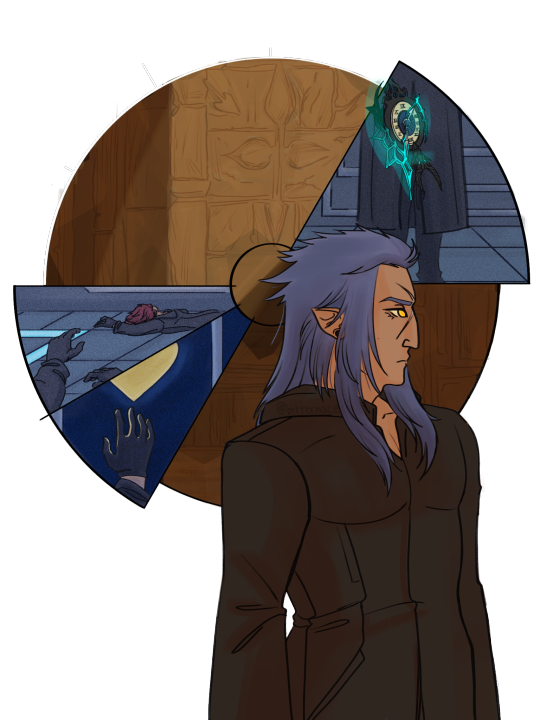
couldn't count all the ways that i've died for you
[ID: a digital drawing of saix from kingdom hearts. He is shown from the hip up, his body in 3/4's and his face in profile. He is shadowed in warm tones. He has a neutral expression, and he's standing straight.
The background is transparent except for a circle that lays from the middle of his shoulders and upwards, with three sections that have a slightly bigger circumference where one to three, seven to eight, and eight to nine would be on a clock. All scenes are blue tones with a noise overlay. these three are all from saix's perspective.
In the first, there is a cloaked figure shown from the waist down, the tip end of young xehanort's keyblade leans forward and some of it goes out of bound, tiled floor as a background. The second one is saix's hand reaching for kingdom hearts. The third is his hand reaching towards Lea, who lies on the floor of radiant garden's lab.
The rest of the circumference is a labyrinth wall in keyblade's graveyard, with a harsh diagonal line of light on the upper half. Most of the circumference is lined black, except from nine to one o'clock, lined white. /End ID.]
#here ya go! :]#typhra#hi dear!!! you're probably gonna see this a little later than when i'm posting but mwah mwah#i didn't know what to do at first!! the og idea was using 'you color me in from my skin to my bones' with berserker saix#then 'are you lost? Take my hand' (see: subject x) but couldnt figure it out and then this idea came to me and i went on a frenzy (jesting)#i'm also not great @mouths/teeth but i will eventually work on figuring teeth out. I'd love to do a more elaborate berserker saix one day#anyway this was so much fun ty for the ask :]#there's a lot of trivia for this one#i told typhra right away but when the ask came in i was currently listening to no.23 of the list#this song was a runner up for the lyric i would slap over that is/alea kissy pic i drew months ago#which is funny to me#There was another piece of trivia but i'm drawing a blank hold up#saix kh#nano does reqs#my doods#oH YEAH#when i originally said 'this is done!' The time stamp (....i work slow) was 8:07 and after i noticed some details#it became 8:09 which i think is hilarious since#8/7 as his new/old org number and 8/9 as eight and death number?? okay damn#hilarious universe tysm#23
76 notes
·
View notes